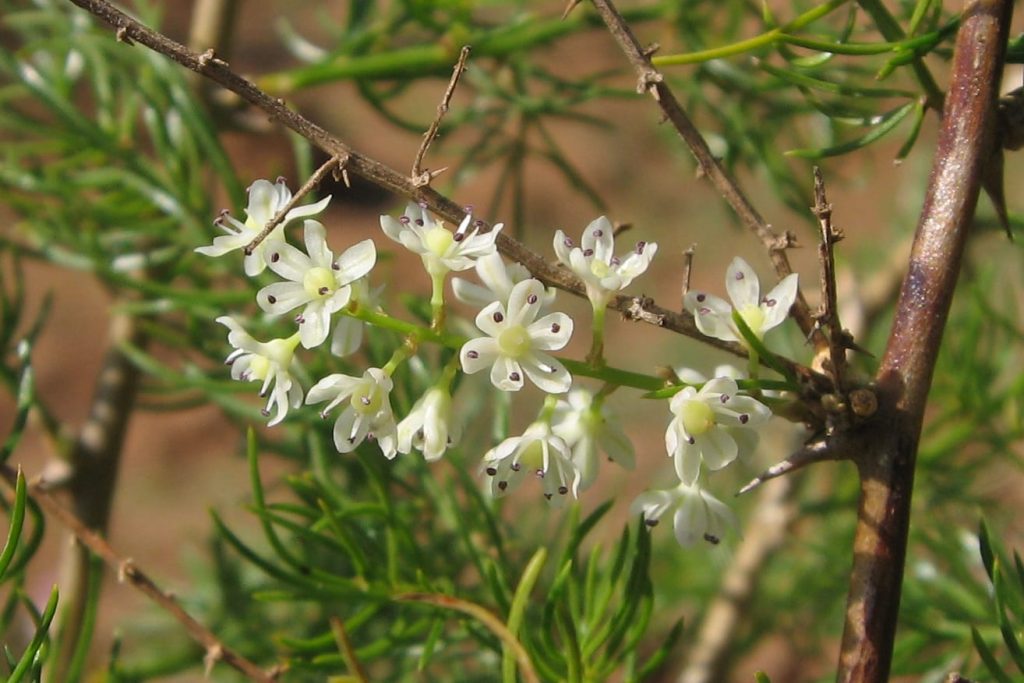
In the realm of natural remedies for male enhancement, Shatavari (Asparagus racemosus) has emerged as a potent and revered herb with a rich history deeply rooted in traditional medicine. Originating from India, this perennial herb has been a staple in Ayurvedic practices for centuries, celebrated for its myriad health benefits, including its potential to enhance male vitality and reproductive health.
Shatavari, also known as the “queen of herbs” in Ayurveda, belongs to the Asparagus family. It thrives in diverse climatic conditions, particularly in tropical and subtropical regions. The plant’s therapeutic properties are primarily derived from its root, which is dried and used to create herbal formulations.
Table of Contents
Historical Significance:
Shatavari’s historical significance in Ayurveda dates back over 2000 years, where it was traditionally utilized to promote overall health and well-being. Its name, Shatavari, translates to “she who possesses a hundred husbands,” emphasizing its reputation as a herb that supports female reproductive health. However, recent studies and anecdotal evidence have also explored its potential benefits for men.
Active Components and Mechanisms:
The medicinal properties of Shatavari are attributed to its rich composition of bioactive compounds. Saponins, flavonoids, alkaloids, and essential oils are among the key constituents that contribute to its therapeutic effects. These compounds are believed to modulate hormonal balance, enhance antioxidant defenses, and provide overall nourishment to the male reproductive system.
Shatavari’s adaptogenic properties play a crucial role in maintaining hormonal equilibrium. It is thought to have a positive impact on testosterone levels, which are integral for male reproductive health, muscle development, and overall vitality.
By acting on the endocrine system, Shatavari may support the production and regulation of testosterone, contributing to improved sexual function and performance.
Additionally, the herb is recognized for its antioxidant properties, which help combat oxidative stress in the body.
Oxidative stress has been linked to various health issues, including reproductive disorders. Shatavari’s antioxidant activity may protect sperm cells from damage caused by free radicals, thereby preserving their quality and motility.
Male Reproductive Health Benefits:
- Enhanced Libido: Shatavari is believed to have aphrodisiac properties that can stimulate sexual desire and libido. By influencing hormonal pathways, it may contribute to a heightened sense of arousal and interest in sexual activity.
- Improved Sperm Quality: Research suggests that Shatavari may positively impact sperm parameters such as count, motility, and morphology. This could be particularly beneficial for couples facing fertility issues, as healthy sperm are crucial for successful conception.
- Erectile Function Support: Some studies propose that Shatavari may aid in maintaining healthy erectile function. By promoting blood flow to the genital area and supporting the overall health of blood vessels, it may contribute to sustained and firmer erections.
- Stress Reduction: Stress is a known factor that can negatively impact male reproductive health. Shatavari’s adaptogenic properties may help alleviate stress and anxiety, creating a conducive environment for optimal sexual function.
Usage and Dosage:
Shatavari is available in various forms, including powders, capsules, and liquid extracts. The recommended dosage may vary depending on the specific product and individual health needs.
It is advisable to consult with a healthcare professional or an Ayurvedic practitioner to determine the appropriate dosage for your specific requirements.
The herb is often incorporated into formulations with other Ayurvedic ingredients to enhance its efficacy. Popular combinations may include Ashwagandha, Safed Musli, and Gokshura, creating synergistic effects that target different aspects of male reproductive health.
Precautions and Considerations:
While Shatavari is generally well-tolerated, individuals with certain medical conditions or those taking medications should exercise caution.
It is crucial to inform a healthcare provider about any ongoing health concerns or medications to ensure there are no potential interactions.
Pregnant or breastfeeding women and individuals with allergies to the Asparagus family should avoid Shatavari. As with any supplement, moderation is key, and exceeding recommended doses may lead to adverse effects.
Conclusion:
In the realm of male enhancement, Shatavari emerges as a natural and holistic approach deeply rooted in Ayurvedic wisdom. Its historical significance, coupled with modern research, underscores its potential to support male reproductive health by addressing hormonal balance, enhancing sperm quality, and promoting overall vitality.
As interest in natural alternatives to conventional male enhancement methods grows, Shatavari stands out as a promising herb that encapsulates centuries of traditional wisdom.
While individual responses may vary, the cumulative evidence suggests that Shatavari could play a valuable role in promoting male well-being and vitality, offering a gentle and sustainable approach to enhancing male reproductive health.
As with any herbal remedy, consulting with a healthcare professional is paramount to ensure personalized and safe use.
Click here to see one of my all time favourite products that has Shatavari in its main ingredients

Leave a Reply